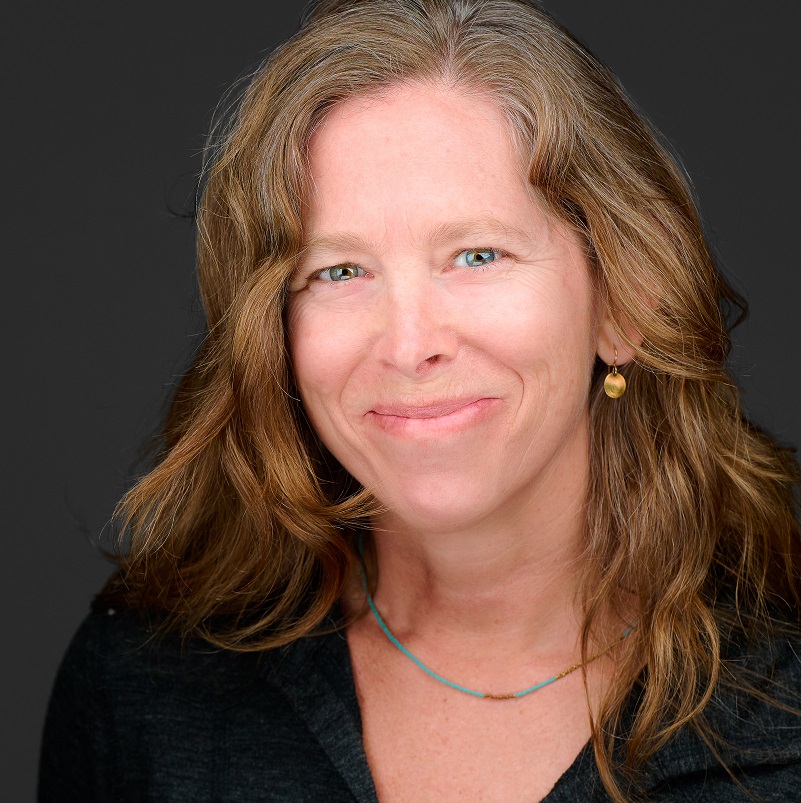The Vermont Agricultural Mediation Program
About VTAMP
The Vermont Agricultural Mediation Program (VTAMP) is the official United States Department of Agriculture certified agricultural mediation program for Vermont. VTAMP provides free mediation services to the agricultural community to help resolve disputes before they end up in court. For background information about mediation, click here.
VTAMP is a valued and trusted resource that helps the agricultural community in Vermont resolve disputes. Over the past several years VTAMP has helped hundreds of farmers, lenders, and others in the agricultural community reach agreements and get back to work. I urge you to contact them if you need assistance concerning a dispute.
What Kind of Agricultural Issues Can Be Mediated for Free?
Contracts, Farm Management, and Labor
Operating a farm requires overseeing general farm management issues as well as managing labor and contractual issues. When problems in these areas arise, the mediation program can help the parties discuss the issue in a constructive manner and develop mutually acceptable solutions.
Credit Counseling
When finances are tight, farmers must make critical decisions about paying back farm loans, credit card companies, and lessors, while still meeting basic living expenses. Credit counseling can help farmers get an overview of their financial situation, including cash flow requirements, and develop a plan to work with creditors in order to maintain farm operations.
Crop Insurance
Crop damage due to pests or weather can be devastating, but crop insurance doesn’t always provide the relief expected by a farmer. Mediation can help farmers and insurance companies work out damage claims on USDA Risk Management Agency insurance policies.
Easement Issues
Many farms have easements either with neighbors, land trusts, or even USDA. If there is a disagreement about the meaning of the easement or if you would like help negotiating an easement, the agricultural mediation program can help.
Environmental Compliance
Family Farm Transitions
Decisions about the long term future of a family farm can be financially and emotionally challenging. A neutral mediator can help farm families clarify changing roles and responsibilities, agree on financial terms, and navigate difficult conversations that often are part of family farm transitions.
Farm Credit/Debt Issues
Farm-related credit and debt issues can arise with feed or equipment dealers and credit card companies. Mediation can help work out lump-sum or monthly installment payment plans or other arrangements.
Farm Loans
Farm loans can provide crucial funding for farm ownership and operating expenses. Loan sources can include the USDA Farm Service Agency, Farm Credit banks, private banks, or even a friend or family member. If repayments have become a problem or changes are needed to the loan’s terms, a neutral mediator can help with loan modifications and repayments. Working with a mediator may also help address possible foreclosures.
Farmer-Neighbor Disputes
Disputes related to noises, odors, pesticide application or other issues can cause friction with nearby property owners. Mediation can help parties craft solutions to address concerns that arise from farming operations.
Leases (Land and Equipment)
Leases are important options for long term access to farmland, or for equipment use, but parties may differ in how they interpret the terms after the lease is executed. Conditions may have changed, or one side may be perceived as not living up to the bargain. Mediation can help parties negotiate the terms of new land and equipment leases and resolve conflicts with existing leases.
Organic Certification
Disagreements about organic certification or de-certification can have major impacts on market access. Mediation can help organic farmers and certifying agents focus on areas of contention to develop mutually agreeable solutions.
Pesticide Issues
Pesticide use is heavily regulated and can be contentious. Mediation can help parties address issues concerning pesticide application, enforcement, drift, buffers, and other issues.
USDA Farm and Conservation Programs
USDA farm and conservation programs often have complicated requirements that can include significant penalties for non-compliance. Farm or environmental conditions can change, making it difficult to meet planned objectives. Misunderstandings can arise about initial expectations or whether expectations have been met. Mediation can facilitate communication, help parties better understand each other’s perspectives, and resolve underlying issues. Mediation helps the farmer maintain control over final decision making.
USDA Rural Development Loans
USDA Rural Development loans also offer home ownership opportunities to low- and moderate-income rural Americans. When problems arise, mediators can help parties reach agreement on loan denials, modifications, and repayment plans.
Wetlands Determinations
Wetlands determinations can limit options for use of the land. If a farmer disagrees with a wetlands determination, mediation can be a useful process to bring experts into the process to ensure both sides agree on delineation of the wetland.
How Much Does Mediation Cost?
For other common questions about mediation, see our FAQ.
Steps To Request Mediation Through VTAMP
- Fill out and submit a Request for Mediation form.
- VTAMP staff will confirm that the other party (or parties) is willing to participate in the mediation.
- VTAMP staff will conduct brief confidential interviews to learn background information about the dispute.
- VTAMP will assign a mediator from the Agricultural Mediation Roster or VTAMP staff based on subject matter expertise, geography, and availability.
- The mediator will contact the parties to arrange a date, time and location for the mediation session.
Program Contacts
Matt Strassberg
Director
(802) 583-1100 ext 101
Eliza Walker
Program Manager
(802) 583-1100 ext 107
Government Organization Links
Other Organizations And Programs
Other Nearby USDA Certified Agricultural Mediation Programs
Bring financial stability to your operation. See how ag credit mediation can help.
VTAMP Staff

Julie Hoyt
Mediator
Julie Hoyt was the Associate Director of the Environmental Mediation Center. Julie has worked with EMC since 2007 and previously assisted in the administration of both the Vermont and New Hampshire Agricultural Mediation Programs. Julie is an attorney admitted to practice in both Vermont and Massachusetts. Julie’s mediation experience includes a variety of producer-creditor disputes, adverse decision letters arising from FSA loans, NRCS programs, Rural Development loans and many others. Julie has experience working in the agricultural community working on issues affecting dairy and goat farms and fruit and vegetable growers.

Matt Strassberg
Director
Matt is the director of the Environmental Mediation Center and the administrator of the EMC’s agricultural mediation programs. He is an attorney and mediator with over thirty years of experience in environmental law and mediation. He was the founding director of Green Mountain Environmental Resolutions, a dispute resolution firm focused on developing collaborative solutions to environmental and land use disputes. He serves on the Steering Committee of the Coalition of Agricultural Mediation Programs and is listed on the roster of the US Institute for Environmental Conflict Resolution.

Eliza Walker
Program Manager and Mediator
Liza is a Program Manager and Mediator serving Vermont’s agricultural community and forestland owners. Liza brings 25 years of experience in land conservation to the resolution of environmental and land-based conflicts.
Liza supports farmers and landowners in addressing the diverse economic, environmental, and interpersonal challenges that impact the operation and succession of farms, sugarbushes and family forests.
Liza earned her B.S. in Environmental Studies from Oberlin College and a Certificate in Professional Conflict Management from Champlain College and Northstar Group. She has dispute resolution training in areas of divorce, elder law and land use, with instruction from Vermont Law School and the Program on Negotiation at Harvard Law School. Liza is a Farm Succession Coordinator certified by the International Farm Transfer Network and a Community Heart and Soul® coach. Liza serves on a Restorative Justice Panel for the Montpelier Community Justice Center and lives with her family in Bristol, VT.
VTAMP Mediators

Jennifer Larsen
Mediator
With a background in science, education and mediation, Jennifer brings a breadth and depth of knowledge in technical science, forestry, and agriculture to her mediation and facilitation practice. Her work includes facilitation, conflict consulting, trainings and mediation for non-profits, towns, the agricultural community, the U.S. Forest Service, and in Chittenden County Small Claims Court. Jennifer served as a field and lab scientist for 24 years before becoming a mediator and facilitator. For more than a decade, Jennifer supervised soil and plant tissue analysis in the UVM Agricultural & Environmental Testing Lab, interpreting lab results for, and building collaborative relationships with farmers, feed dealers, extension agents and researchers. Active in the community garden behind her house, Jennifer has also been a longtime supporter and member of a CSA. Learn more at: www.jenniferlarsenassociates.com.

Alfred Mills
Mediator
Alfred has worked as a mediator for over thirteen years. He is a member of the Vermont Bar and an active member of the Vermont Bar Association’s Alternative Dispute Resolution Committee. Alfred is an Adjunct Professor in the Masters in Mediation (teaching Legal Issues in Mediation and Negotiation) and Masters of Science in Law (teaching Constitutional Law, Torts, and Alternative Dispute Resolution) programs at the Woodbury Institute of Champlain College and an active member of the Vermont Bar Association’s Alternative Dispute Resolution Committee. In his past life, he spent four years as a Wilderness Ranger in Wenatchee National Forest in Washington state. Today he lives and works in and around Montpelier, Vermont. Learn more about Alfred at his website: www.riverstoneresolutions.com

Julian Portilla
Mediator

Neal Rodar
Mediator

Susan Terry
Mediator
CASE STUDIES
The above case studies are either compilations of cases with similar facts or include changes to minor details to protect the confidentiality of the mediation process and the privacy of the parties. Photos of farms and or farmers are used for decorative purposes. These farms and farmers were not involved in the above case studies.
Testimonials
The dedication of Agricultural Mediation Program mediators and their ability to get all the necessary parties willing to work together constructively made it possible to reach a positive outcome in a case where it didn’t seem likely.
I tried to resolve my dispute on my own for 18 months but was shot down on every avenue I tried. Once we got into mediation, they really started to listen to me for the first time and we were able to resolve the dispute quickly.
The mediation enabled the parties to communicate their interests clearly and effectively and reach a resolution quickly that was acceptable by all parties. I felt really good about how the mediation was conducted and would use Agricultural Mediation Program’s services again.
CONTACT US
Program Contacts
Matt Strassberg
Director
(802) 583-1100 ext 101
Eliza Walker
Program Manager
(802) 583-1100 ext 107
